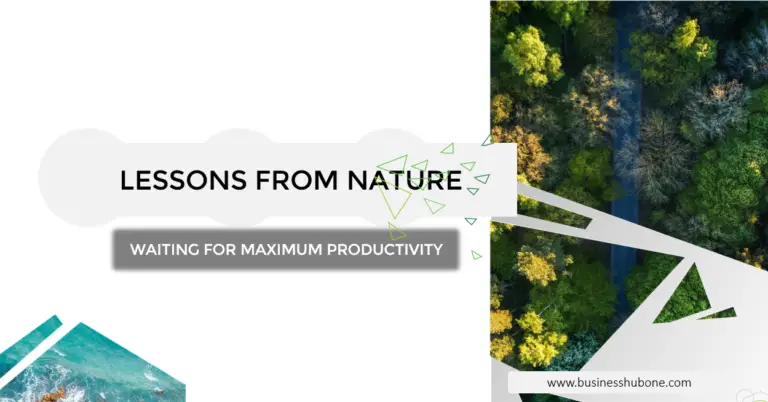Strategies for Building a High Performance Team
A team is a group of people who perform interdependent tasks in a bid to work towards accomplishing a common mission or specific objective. A high performance team guarantees a higher work rate, improved quality and productivity, greater innovation and promotion of cross-functional understanding {especially of a product yet to be launched into the market.} it is therefore the responsibility of a startup entrepreneur to build the perfect team to ensure success.
Building the right team is the cornerstone of the prosperity of a startup. In entrepreneurship, assembling a team with the right blend of skills, expertise, and synergy can propel a business towards its goals. From visionaries to technical experts, marketing strategists to operations specialists, each team member plays a vital role in shaping the trajectory of the startup. In this article, we delve into the strategies for crafting a high-performance team that drives innovation, fosters collaboration, and accelerates business growth.
Table of Contents
Why do you need a team for your business?
The composition of a startup team can make or break its success. A well-rounded team brings diverse perspectives, creative problem-solving skills, and complementary expertise (can complement the expertise/skill of the business owner or founder) to the table. Beyond individual capabilities, team synergy creates a cohesive unit that navigates challenges, capitalises on opportunities, and cultivates a thriving company culture. Investors and stakeholders are drawn to startups with strong teams, recognizing their potential to execute on ambitious visions and deliver tangible results.
Strategies for creating a high performance team.
Identify the Right Team Members:
The first step in building a high-performance team is identifying the key roles and skill sets needed to drive the startup forward. Whether it’s a visionary leader with a knack for strategy, a technical expert with coding prowess, or a marketing guru with a flair for storytelling, each team member should bring unique strengths to the table. Leveraging networking, online platforms, and targeted recruitment efforts can help founders identify top talent that aligns with their vision and values.
Cultivate a Positive Team Culture:
A positive company culture is the glue that holds a startup team together. By fostering collaboration, trust, and mutual respect, a strong team culture lays the foundation for success. Transparent communication, and team-building activities help cultivate a sense of belonging and ownership among team members. A culture that celebrates diversity and inclusivity not only attracts top talent but also fuels creativity and innovation. It is also important as the founder or business owner to avoid favouritism at all costs and organise recognition programs i.e. Promotions, bonuses, paid trips, awards, etc to deserving team members at the right time.
Effective Team Communication and Collaboration:
Open and effective communication is essential for seamless collaboration within a startup team. Clear channels of communication, regular team meetings both on site and online, and project management tools facilitate the exchange of ideas, feedback, and updates. Embracing tools and technologies that streamline communication, such as Slack, Trello, and Zoom, empowers team members to stay connected and aligned, regardless of geographical location or time zone.
Empower and Develop Team Members:
Empowering team members to take ownership of their work and contribute to the company’s success is crucial for fostering engagement and motivation. Providing opportunities for professional development, mentorship, and skills training enables team members to grow personally and professionally. Performance feedback, career progression pathways, and recognition programs reinforce a culture of continuous learning and improvement, driving individual and collective success.
Emphasise Diversity and Inclusion:
Building a diverse team with varied backgrounds, perspectives, and experiences fosters innovation and creativity as well as provides the potential for reaching a wider customer base. Embrace diversity in gender, ethnicity, age, and cultural background to bring fresh ideas and insights to the table.
Encourage Creativity and Innovation:
Create an environment that encourages experimentation, risk-taking, and out-of-the-box thinking. Reward out-of-the-box thinking with both the potential and actualisation of success in the business. Provide resources, time, and support for exploring new ideas and approaches to solving problems. This can also take the form of exposure to new ideas in your industry, pay for courses, hackathons, Ted X events, abroad internships, etc
Prioritise Work-Life Balance:
Recognize the importance of work-life balance in maintaining the well-being and productivity of team members. Offer flexibility, support, and resources to help team members manage their workload and personal commitments. E.g employ new team members as workload increases, provide other avenues for team members to complete tasks, i.e online work, online meetings,etc. Invasion of personal space or work updates after work hours should be drastically reduced to a minimum, if not eliminated completely to foster better work-life balance for your team members.
Foster Autonomy and Accountability:
Encourage team members to take ownership of their work and make autonomous decisions within their areas of expertise. Establish clear goals, expectations, and accountability mechanisms to ensure alignment and drive results.
Establish Ground Rules
The final step towards building productive teams within your company is to create goals and team values. You must also find a way of striking a balance between evaluating team performance and individual performance.
Carry the teams along as you set these ground rules so that they know what your expectations are and take responsibility for them.
Case Studies and Examples:
Consider the success story of Airbnb, which transformed the hospitality industry by leveraging the expertise of its co-founders, Brian Chesky, Joe Gebbia, and Nathan Blecharczyk. Their diverse skill sets in design, engineering, and business development enabled them to disrupt the market and build a global brand.
In addition, Warby Parker disrupted the eyewear industry by offering stylish, affordable glasses directly to consumers online. Co-founders Neil Blumenthal, Dave Gilboa, Andrew Hunt, and Jeffrey Raider built a team with diverse backgrounds in e-commerce, fashion, and technology, leveraging their combined expertise to create a seamless online shopping experience and disrupt traditional brick-and-mortar retail models.
Furthermore, Canva, a graphic design platform, was co-founded by Melanie Perkins, Cliff Obrecht, and Cameron Adams in 2012. Perkins, with a background in design education, teamed up with Obrecht and Adams, who brought expertise in technology and product development. Together, they built a diverse team of designers, engineers, and marketers who shared a passion for empowering users to create beautiful designs effortlessly. Canva’s team-focused culture, commitment to user-centric design, and relentless pursuit of innovation have made it a household name in the design industry.
In conclusion, building a high-performance team is a strategic imperative for startup success. By prioritising team building, founders can assemble a talented and cohesive unit that drives innovation, fosters collaboration, and accelerates business growth. From identifying the right team members to cultivating a positive company culture, effective communication, and empowerment, each step in the process contributes to unlocking the full potential of the team and the startup as a whole. Aspiring entrepreneurs should heed these strategies and best practices as they embark on their journey to build the next generation of industry-leading companies.







